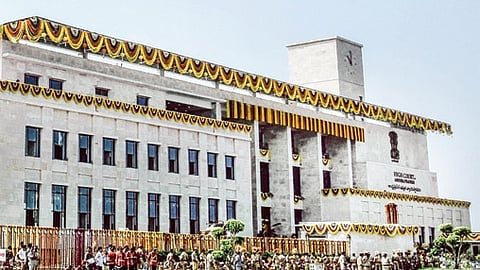Consider mercy plea of 1992 bus burning case convicts: HC tells Andhra government
VIJAYAWADA: The High Court on Friday instructed the state government to consider the mercy petition and parole petitions of the two convicted in the sensational Chilakaluripeta bus burning case that happened 26 years ago.
While hearing the habeas corpus petition filed by daughter of the main convict, Saluri Chalapathi Rao, seeking grant of parole in November 2018, the High Court bench headed by Justice Raavu Raghunandan Rao and Justice Kunchem Maheshwara Rao gave orders to State government and the Prisons department to consider the petitions from Saluri Chalapathi Rao seeking parole or mercy petition and also instructed them to follow the guidelines that were in place at the time when the then President KR Narayanan commuted Chalapathi Rao’s death sentence to life imprisonment.
The Director General of Prisons was also instructed to consider whether Chalapathi Rao has demonstrated good behaviour in prison. The case dates back to March 8, 1993, when the accused Chalapathi Rao and G Vijaya Vardhan Rao set fire to an APSRTC bus traveling from Hyderabad to Chilakaluripet with the intent of robbing the passengers.
Jail officials oppose plea of convict for clemency
In the tragic incident, 23 passengers lost their lives. The incident caused nationwide outrage at the time. After the investigation, the Guntur court sentenced both the accused to death on September 7, 1995. The High Court upheld the verdict, and the Supreme Court confirmed the death sentence on August 28, 1996.
However, the execution was halted and the death sentence was commuted to life imprisonment due to the intervention of Jnanpith award-winning writer Mahasweta Devi, who personally submitted a clemency petition to the President Shankar Dayal Sharma on behalf of the two convicts. Following that, she immediately approached the SC. The then CJI constituted a special SC bench.
Mahasweta Devi requested a stay on the execution, stating that the clemency petition was still pending with the President. As a result, the SC stayed the executions of Chalapathi Rao and Vijaya Vardhan Rao. Subsequently, the next President, K Narayanan, issued orders commuting the death sentences of both men to life imprisonment.
Counsel on behalf of Swapna (daughter of Chalapathi Rao) presented his arguments before the court that her father has been in prison for more than 25 years and was denied general parole, which is usually granted once every two years for a duration of two months.
The counsel also explained to the court that Chalapathi Rao has served over 20 years in prison and requested the court to issue orders for his release.
However, prison officials disagreed with this argument. Public prosecutor stated that generally, those serving life sentences are eligible for clemency. But the clemency rules do not apply to convicts whose death sentences have been commuted to life imprisonment.
What happened
23 passengers were charred to death while many more suffered injuries when the Chilakaluripeta-bound APSRTC bus was set on fire at Kondrupadu village on March 8, 1993.
The two accused S Chalapathi Rao and G Vijayavardhana Rao had planned to rob the passengers by sprinkling petrol on the bus, but the plan went horribly wrong.
After the investigation, the Guntur court sentenced both the accused to death on Sept 7, 1995. The HC upheld the verdict, and the SC confirmed the death sentence
The death sentence was commuted to lifeWh due to the intervention of Jnanpith award-winning writer Mahasweta Devi.

